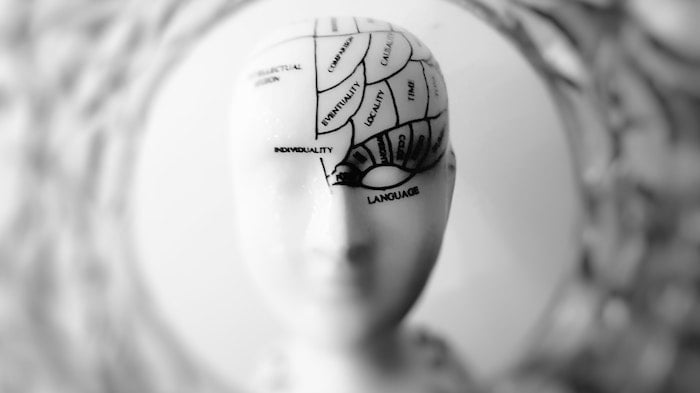- Home
- Addiction Guides
- What is Co-dependency?
What is Co-dependency?
Co-dependency is sometimes referred to as a kind of ‘relationship addiction.‘
Co-dependency itself is classed as a condition that affects emotions and behaviours. [1]
Usually in relationships, we experience feelings of equality and balance.
We are taught that to love and support someone in a relationship context is to consider their needs as well as our own. In an expected relationship dynamic, our interactions can be described as working in symbiosis.
Symbiosis is a mutually beneficial relationship. Or in other words, a relationship where both parties are getting their needs met.
However, in some cases, relationships can stop being equal or balanced. When we continually put ourselves first, or on the other side of things, prioritise another person, it is likely that feelings of neglect can develop.
Defining Co-dependency in a Psychological Context

Research into relationships has suggested that co-dependency is a learned behaviour. [2]
This suggests that if one generation of a family has co-dependent attributes, then the following generation is likely to have the same emotional and behavioural characteristics in their interactions.
Studies into nature (our genetics) and nurture (our environment, and the way that we have been brought up or raised) suggests that we learn on inherit ways of interacting with each other by watching those around us do the same. [3]
What Kinds of Relationships Can Be Co-dependent?
When we talk about relationships, we automatically think of romantic or intimate relationships – the connections we have with our partners or spouses.
However, when we talk about relationships in terms of psychology, it can mean much more than that.
When we talk about relationships, this is an umbrella term that can be referring to a variety of different types of relationships, including:
- romantic or intimate relationships (the relationship between partners)
- parental relationships (the relationship between parent and child)
- sibling relationships (the relationship between brothers and sisters)
- platonic relationships (the relationship between friends
- professional relationships (the relationship between colleagues or peers) [4]
As all relationships can be different, this means that any connection has the capacity to become an unhealthy relationship.
This means then, that any kind of relationship can be a codependent relationship.
What Are the Signs of Co-dependency?

It is important to remember that not all co-dependent individuals will act in exactly the same way.
As we all have our own experiences and different ways of processing and acting in response to our thoughts and feelings, it isn’t always easy to define exactly what every co-dependent person or co-dependent partner’s interpersonal relationships will look like.
With that being said, there are some key identifiable symptoms of co-dependency.
It is unlikely that all of these symptoms will be experienced in a healthy relationship.
For that reason, if you are experiencing these symptoms (in yourself, or in a partner, family member or friend) consistently, there is a likelihood that you are in a co-dependent or otherwise dysfunctional relationship.
Some of the signs of co-dependency include:
Behavioural signs of co-dependency
- consistently doing more than is needed – doing more than their fair share of tasks
- lying or being dishonest
- finding it hard to make decisions
- having difficulty with change
- having issues with identifying, maintaining and respecting boundaries, especially in terms of intimate relationships
- being controlling or demanding
- difficulty communicating – either being unclear, not communicating enough, or speaking over or at the expense of others
Emotional signs of co-dependency
- feeling guilt for being assertive, or for communicating their needs clearly
- feeling responsible for the thoughts, feelings, and behaviours of those around them
- feeling upset when people do not notice things that they have done to benefit others
- struggling to identify the difference between love and pity
- being quick to anger
- feeling fearful about being alone, having anxiety around being abandoned or left [5]
Questionnaire To Identify Signs of Co-dependency

Researchers and mental health professionals have established different modes of assessing the signs and symptoms of a co-dependent relationship.
The primary method of assessing if a relationship is codependent is through the Friel co-dependent assessment.
This tool asks a variety of questions that measures the presence of five factors that are connected with co-dependency.
These five factors are:
- Self-neglect, or ‘other focus’
- Low self-worth
- ‘Hiding’ self
- Medical issues
- Family issues [6]
The questions in the assessment are closed questions. This means that they can only be answered with a simple ‘yes’ or ‘no’ or ‘true’ or ‘false’.
Here are some examples of the kinds of questions that are asked in the co-dependency assessment:
- I take good care of myself
- If I reduced my efforts, I do not feel that things would fall apart
- I do not let people take advantage of me
- I can handle problems with a calm and strong sense of direction
- I often criticise how I acted in interactions with other people
- I struggle with being on my own
- I do my share of chores, tasks, and work – sometimes doing more
- I do not feel ‘good’ about my childhood experiences
- I find I am at peace and feel calm most of the time
- I find making big decisions easy [7]
In the assessment, there are a total of 60 questions.
If you score:
- below 20: there is little or no cause for concern
- between 21 and 30: there is a moderate cause for concern
- between 31 and 45: there is a moderate to severe cause for concern
- 46 or above: there is a severe need for concern, and intervention is advised
What Are the Causes of Co-dependency?
As co-dependency is defined as an unequal relationship dynamic, co-dependent relationships can often seem harmful, dangerous, and even abusive.
Initially, co-dependency was identified in the relationships between individuals struggling with substance abuse and addiction and their families or spouses.
For this reason, co-dependency was first used to describe the relationships where drug or alcohol dependence is present.
This then broadened to consider the role that chronic illness and mental illness have in relationships and connections.
Today, co-dependency refers to any relationship that can be defined as dysfunctional in any way. [8]
The Role of The Dysfunctional Family

At the root of the study of co-dependency is the role of the dysfunctional family dynamic.
There are many different ways in which families can become dysfunctional.
Some examples of characteristics of dysfunctional family relations include:
- the presence of addictions, compulsions or dependence (especially in parents)
- the presence of violence in the home (physical, verbal, or sexual abuse)
- the exploiting of children by the parent: being used as a tool or ‘weapon’ against a spouse or ex-spouse
- having physical or emotional responsibilities that are inappropriate for their age (caring as a young child, etc.)
- the threat of discontinuing parental support – in terms of domestic, emotional, or financial terms
- a strong sense of control and expected compliance (too strict political, religious, social, or ideological concerns)
- the inability of children to share their thoughts and feelings in a safe manner (and for their feelings to be received with sensitivity and respect)
- continued rejection
- an experience of emotional distance from parents
- an experience of excessive involvement from parents, especially in private or personal matters [9]
Is There Such a Thing as A Co-dependent Personality?
Co-dependency is not classed as a condition. Instead, it is seen as a construct, or a way of interacting, as it can be unlearned.
It is important not to confuse co-dependency with dependent personality disorder, which is a mental health condition that has its own set of diagnostic criteria and characteristics.
Whilst it is possible (and is somewhat common) for some people with a dependent personality disorder to exhibit co-dependent behaviours, not everyone who struggles with co-dependency has a personality disorder. [10]
Why is Co-dependency Unhealthy?
Co-dependency is unhealthy as it usually occurs as an effect of abusive or dysfunctional relationships.
In abusive relationships, the expected dynamics of interpersonal connection are skewed. In our early years, we are learning how to connect to people in healthy ways.
By navigating the unhealthy behaviours associated with co-dependent traits at such a young age, we may begin to learn that these behaviours are normal.
This changes the way that individuals respond and engage with others in the world.
If you have grown up believing that co-dependent behaviours are the norm, then there is less chance that you will have been able to develop healthy boundaries. A lack of healthy boundaries causes issues with safety.
As a result, individuals with co-dependent traits can exhibit unhealthy behaviours that can ultimately challenge safety, both for themselves and for others around them.
How to Overcome Codependency
As co-dependency is a learned behaviour, there is a risk that we can pass on emotional and behavioural traits of co-dependence to others around us.
By accessing treatment and support to help you navigate the way that you connect to others and think about yourself, you can begin to break the cycle of your unhealthy dependence on relationships or involvement in destructive relationships.[11]
How is Co-dependency Treated?

The concept of co-dependency is deeply linked to our formative experiences as children.
This means that a lot of the thoughts, feelings and behaviours that are associated with co-dependency are learned, and for them to be tackled, they need to be unlearned and challenged.
This usually means that the treatment for co-dependency is often psychotherapies: psychological support that allows you to speak about your feelings and past experiences.
A specific form of therapy, known as co-dependency treatment has been developed especially to help you combat ingrained patterns of thoughts, feelings, and codependent behaviours.
Co-dependency treatment can include:
- learning what co-dependency is, what it looks like, what causes it, and the effects it may have on us and those around us
- learning how to identify a positive relationship, and what a healthy family dynamic looks like
- psychotherapeutic discussions in one-to-one contexts (talking about our childhoods, and exploring our feelings in a safe and supportive environment)
- psychotherapeutic discussions in group therapy contexts (to allow discussion, connection and support to individuals who may have similar experiences)
- therapy work to develop and increase feelings of self-worth
- working with a family therapist, or therapy with a romantic partner to discuss and reconfigure relationships in a safe and supportive environment
Other, more general forms of treatment that can also have a positive impact on individuals struggling with co-dependency include:
- Brief Interventions
- Cognitive Behavioural Therapy (CBT)
- Dialectical Behavioural Therapy (DBT)
- Detox
- Family Therapy
- Group Therapy
- Holistic Therapy/ Alternative Therapy (Art Therapy, Music Therapy, Equine Therapy, etc).
- Individual Therapy (1-1 Therapy)
- Inpatient drug or alcohol rehab
- Motivational Enhancement
- Motivational Interviewing
- Twelve-Step Facilitation Treatment (TSF)
- Contingency management
- Access to therapeutic communities or self-help groups
- Engaging with Alcoholics Anonymous (AA)
- Engaging with Narcotics Anonymous (NA)
- Engaging with AI Anon support groups
- Discussing experiences of childhood abuse with a trusted professional, clinician, or other appropriate agency
Accessing Support
Co-dependency is more common than we might expect.
But that doesn’t mean that it doesn’t come without its difficulties.
If you are experiencing any thoughts, feelings, or persistent examples of co-dependent behaviours, or think you know someone who is, there are ways that you can access help and support to help you learn ways to cope with co-dependency.
With the right communication, support, and strategies in place you can regain control of your interpersonal relationships and find ways to reconnect to yourself and others while developing psychological and emotional strategies to help keep yourself and those around you safe.
How We Can Help

If you are concerned about the impact co-dependency may be having on yourself or a loved one, Rehab Recovery can give you non-judgemental advice and support for yourself, a family member or a friend.
You can call us on 0800 088 66 86, or you can request a call back to speak to a member of the team.
If you would prefer not to speak over the phone for any reason, the Rehab Recovery chat lines are open 24/7 to provide you with support and to answer any questions you may have about accessing support or advice for your experience of co-dependency.
References
[1] https://www.mhanational.org/co-dependency
[2] https://link.springer.com/article/10.1023/A:1021627205565
[4] https://assertbh.org.uk/wp-content/uploads/2016/08/Different-Types-of-Relationships.pdf
[5] https://www.mhanational.org/co-dependency
[6] https://www.psychiatricnursing.org/article/S0883-9417(98)80036-8/pdf
[7] https://www.mhankyswoh.org/Uploads/files/pdfs/CoDependency-CoDependencyTest_20130813.pdf
[8] https://www.mhanational.org/co-dependency




